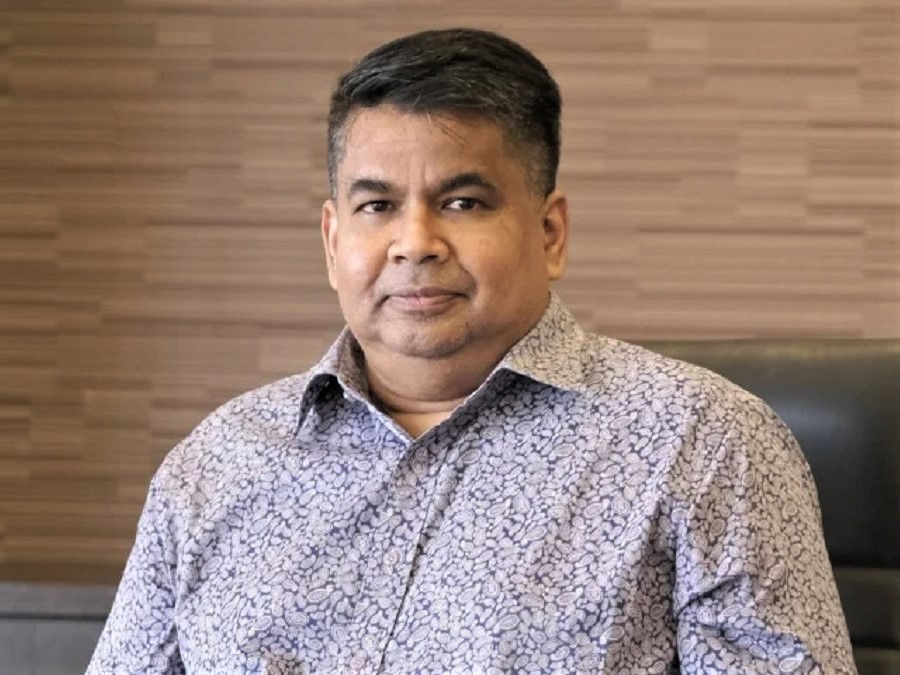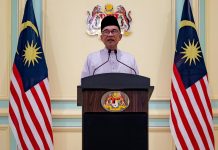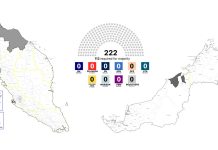Malaysia takes further steps in its democratic journey for the first time in its 59th year anniversary with the automatic inclusion of all adults above the age of 18 being eligible to vote. Previously unlike other democratic nations in Asia, the voting age in Malaysia was 21 and now it is 18.
News Hub Asia spoke to Datuk Dr Rais Husin, one of the leading political commentators in Malaysia, about the strategic landscape of the next 30 days leading up to the 15th General Election (GE15) on 19 November.

Subscribe to our Telegram channel to get a daily dose of business and lifestyle news from NHA – News Hub Asia!
When asked about the recent announcement by the Election Commission of Malaysia (EC) in terms of the dates for the upcoming election, Dr Rais said that due to the dissolution of Parliament on 10 October, nomination, formal campaigning and polling day will all take place in the “middle” of a monsoon season.
“Due to climate change and, therefore, the pattern of Tropical Depression as a result in recent years is not to lose momentum as it moves inland along the East Coast but to continue onwards towards the southwest.
“This is why we see abnormal rainfall and heavy downpour in the Greater Klang Valley, which includes Malaysia Vision Valley 2 (that encompasses the conurbations of Negeri Sembilan – the Nilai-Seremban sub-region).”
He continued, “The timing precipitated by the gung-ho politicians can’t be more un-propitious and represents “sheer imperviousness” to the woes already suffered by rakyat reeling, as it is, from previous the floodings – which also comes with enormous financial and economic costs.”
When speaking about the favourability of the dates for various parties, Dr Rais added, “Definitely, the timing is meant to favour the incumbents. It could well be said that the aim is a form of voter suppression – with the monsoon season as the larger context. It’s probably hoped that this would induce a lower turnout or discourage a high turnout that will most probably be advantageous to the other side. This is so as many outstation and overseas voters are known to be voters of a particular coalition in opposition since the Sheraton Move.
“The sudden move to call for a general election even as it comes not long after the three state elections of Melaka, Johor and Sarawak combined with the larger context of the monsoon season is expected to dampen voter enthusiasm. There could also be lingering voter fatigue in relation to the three states alluded.”
He continued, “The caretaker Prime Minister in cahoots with the Umno top leadership could also be wanting to exploit the perceived disunity and fragmentation of the anti-BN forces, including PN. It’s vital for Umno to maintain its stereotypical “near-dominance” in the seats with absolute Malay majorities, i.e., of 65 per cent and above, and in the rural areas.”
In terms of understanding strategies that will be rolled out in the coming days by various political parties, strategist Dr Rais, who is also the president and chief executive officer of EMIR Research, is of the opinion that “We should be bracing for the re-ignition of the toxic mix of ethno-religious rhetoric and dog-whistling being pumped into the media and social media, in particular, in order to yet again divert attention from the issues of corruption, especially pertaining to the “court cluster”, as some still have pending cases.”
He continued, “These politicians will need to stress the Malay-Muslim character of the in-coming government – to “remind” the Malay voters who comprise the majority of the consequences of otherwise.
“Of course, the other strategy would be to harp on the shortcomings and perceived flaws of the previous administration, with particular emphasis on the 22-month-old PH government. The so-called “semi-austerity” measures implemented will be blown out of proportion.”
He also said that talks about the “poor” performance and selling out of Malay-Muslim economic or financial institutions like PNB (Permodalan Nasional Berhad) and Tabung Haji will be revived.
“There would what be now considered as unjustifiable cries that government contracts will once again dry up – which will also hit the Class D (small) Malay contractors hard – since the opposition has expressed deep concerns about the levels of the national debt and mounting debt service charges.
“Rightly so, but precisely the concerns are also whether government expenditure is properly spent and accounted for – rather than leaked and wasted due to wanton corruption and systemic inefficiencies and therefore not reaching the intended targets so that there’s minimal outcomes and impacts,” he continued.
When sharing his understanding of the concerns of the average citizen, Dr Rais alluded to the National Worry Index as formulated by Emir Research.
Dr Rais explained that the focus of public expenditure of the government of the day should be on the “tummy or perut economy”, which includes addressing the high cost of living; providing affordable housing and access to quality healthcare; addressing the issue of unemployment (and under-employment), especially among youths (together with the personal debts incurred in order to survive the hardships of life, and access to quality education.
“These are what concerns the rakyat (the people). The National Worry Index (as formulated by EMIR Research) has shown that the worries of the rakyat revolves around these five major, critical and fundamental issues.
“At the end of the day, Budget 2023 (and future Budgets) and overall government spending must be based on good governance, radical transparency and the IOOI (input-output-outcome-impact) model.”
“We must ensure that the allocations (input) are not only spent (output) but that the spending achieve their desired goals such as reducing reliance on unconditional cash transfers/UCTs (outcomes) and, thereby, providing the financial space for recipient households to progress towards a higher level of self-sufficiency in the form of transition from low-income wage earner to a micro-entrepreneur (impact),” he concluded.
Dr Rais Hussin was formerly the supreme council member of the Malaysian United Indigenous Party (BERSATU). Last week, Dr Rais officially joined the People’s Justice Party (PKR). He stated that his political journey with the pact would be based on a few core principles, namely justice, reform, inclusiveness and progress. ![]()




